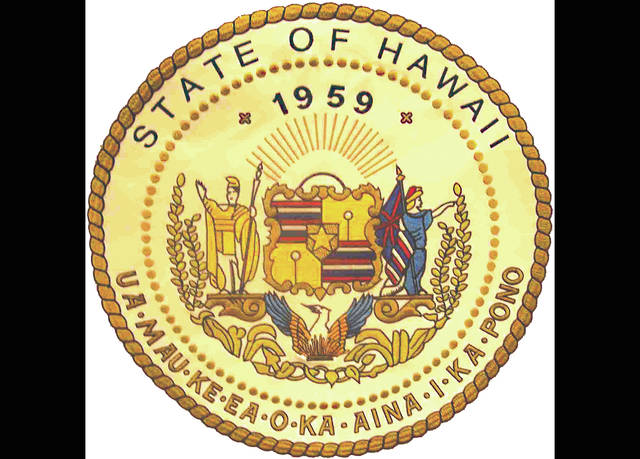Lawmaker: Senate sidestepped own rules with Maunakea bill

A controversial bill that has the astronomy community on edge might have violated the state Senate’s own rules since it was crafted without time for a public hearing.
A controversial bill that has the astronomy community on edge might have violated the state Senate’s own rules since it was crafted without time for a public hearing.
But that might have little consequence since legislators say the chamber can bend or ignore them essentially at will.
ADVERTISING
“It’s self-policing,” said Sen. Donna Mercado Kim, who raised concerns about House Bill 1585 on the Senate floor Tuesday. “We have the rules there for a purpose,” she added.
The bill has been a lightning rod for criticism because it was rewritten without notice through a legislative process known as “gut and replace” and would set a construction moratorium on Maunakea. Thirty Meter Telescope supporters say it would kill the $1.4 billion project.
After Sen. Kai Kahele, who is promoting the measure, proposed a minor floor amendment Tuesday, Kim pointed to Senate Rule 23 that says a committee must schedule a bill for a hearing if it contains significant or substantial amendments. She said she was not objecting to the bill’s contents.
“However, I also support the process that we have here in our Senate and in our rules,” Kim, an Oahu Democrat, said in a video broadcast by ‘Olelo TV and posted on Big Island Video News. “Mainly, the process is to allow the public the opportunity to have a say and to testify on many of these measures, especially those that have far-reaching effects.”
The amendment changing the effective date to Dec. 31, 2033, was passed, which delayed final reading by 48 hours. A final vote is scheduled for today in the Senate.
Kahele, D-Hilo, who said the bill is intended to keep the University of Hawaii accountable for its management of the mountain, declined to respond Wednesday to Kim’s comments.
Kim, a former Senate president who is running for Congress, said in a phone interview Wednesday that she will vote against the bill today. She thinks the Senate would be sending the wrong message to the public by passing it.
“When we violate our own rules or don’t adhere to them it doesn’t serve the public well,” Kim said.
The Senate Ways and Means Committee crafted the proposed moratorium last week by deleting the contents of the bill, which up to that point pertained to filling staff positions to oversee capital projects at UH, and inserting the new language.
No notice was given that the bill was going to be replaced and the new version wasn’t made public until Friday evening, two days later. Kahele sits on the committee, which is chaired by Sen. Donovan Dela Cruz.
No other House or Senate committees will hear the bill.
Sen. Russell Ruderman said he can’t support the bill because the public didn’t get a chance to comment. He also is concerned that the move is a constitutional violation.
“I do believe in democracy and I think that includes the public,” said Ruderman, D-Puna, Ka‘u.
He also doesn’t think the bill, which requires UH to conduct multiple audits and receive a new maser lease, in addition to other steps, before new construction can occur, has a chance of passing the House.
If House leadership disagrees with changes to the bill, it heads to a conference committee to see if the chambers can come to an agreement. No public testimony is taken during that process and discussion can occur behind closed doors. Any agreement requires approval in the House and Senate.
Ruderman said he asked Kahele if he would remove the construction moratorium from the bill, but he declined.
Nonetheless, he commends Kahele, who is promoting this bill along with another controversial measure creating a new Maunakea management authority, for conducting community meetings throughout the state about issues affecting the mountain and trying to “think outside the box.”
“I like to support Kai whenever I can but I think this went a step too far,” Ruderman said.
The management bill also was done through gut and replace after the original measure died in the House.
Ruderman said he might vote in support of that bill with reservations since, in that case, notice the bill was being rewritten was given a few days ahead of time.
Even if the Senate can bend or violate its own rules, Maunakea astronomer and TMT supporter Thayne Currie said that doesn’t excuse it.
“Regardless, deliberately circumventing the public from ever providing comment on a bill is highly unethical,” he said in a Facebook message.
“Doing so in a way that hijacks a transparent and fair legal process is even worse,” Currie added, referring to the dual appeals affecting TMT that are being heard by the state Supreme Court.
That position has been echoed by Kealoha Pisciotta, a TMT opponent, who said she asked Kahele not to take up these bills while the court cases proceed.
The effective dates of both bills were changed to Dec. 31, 2033, when UH’s lease for the Maunakea Science Reserve ends, after Kahele offered floor amendments Tuesday.
Kim said a “defective date” is often added to make sure a bill survives until conference.
Kahele said in an email that the effective date, assuming an agreement is reached in conference, would be changed to July 1 or approval by the governor.
Scott Ishikawa, TMT International Observatory spokesman, said the California-based nonprofit is reviewing the legislation.
TIO set April as a deadline for deciding whether to stick with Maunakea or move to the Canary Islands, following several years of setbacks. Ishikawa said the group’s board is meeting this week and will make an announcement Friday.
Email Tom Callis at tcallis@hawaiitribune-herald.com.


